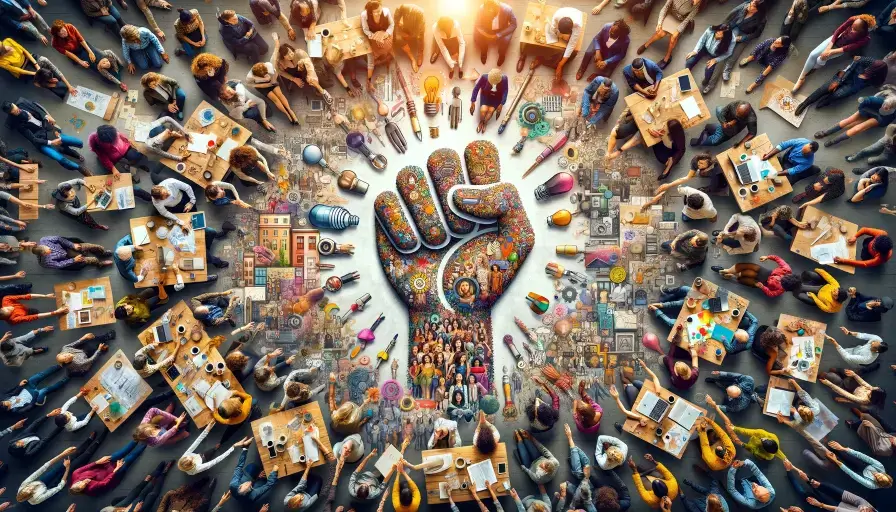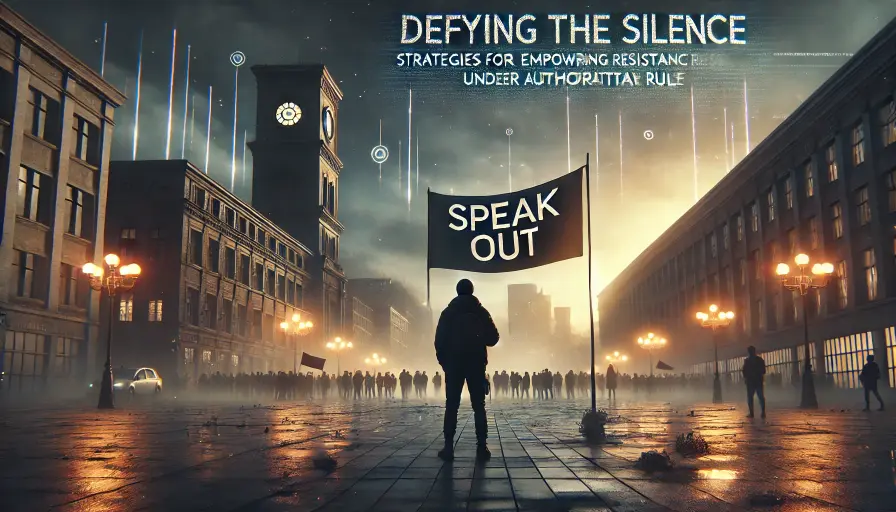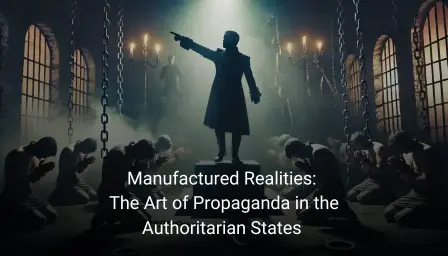Inclusiveness is paramount in modern society, where inclusivity is advocated, and diversity is cherished. But what exactly is inclusiveness, and why should we nurture it?
To delve deeper into this topic, we must first explore the roots of inclusiveness, understand its significance in various aspects of life, and grasp the detrimental effects of exclusiveness.
In this comprehensive guide, we will uncover the essence of inclusiveness, analyze its role in society and governance, and emphasize the need for Compassion and appreciation of diversity. So, let’s embark on a journey to understand why we should nurture inclusiveness.
I- Introduction
A- Exploring the Concept of Inclusiveness
At its core, inclusiveness is the practice of embracing diversity and ensuring that everyone feels accepted and valued, regardless of their differences. It promotes a sense of belonging and fosters an environment where individuals can thrive and contribute their unique perspectives and talents.
However, inclusiveness’s roots extend beyond human interactions; they can be traced back to the very essence of nature itself.
B-Reflecting on Childhood Interactions
Have you ever observed how children converse or interact? They do not care about color, religion, gender, origin, or looks. Their interactions are purely inclusive and without bias of any kind.
This innate inclusiveness is ingrained in us from a young age, but as we grow older and acquire more knowledge about our community, we often become exclusive. The societal norms and prejudices we encounter strip away the inclusiveness built-in within us as children. C-Emphasizing Nature’s Inclusiveness
When we observe nature, we witness a perfect model of inclusiveness. Nature does not discriminate; it embraces all forms of life and provides equality for everyone. When it rains, it does not choose to shower for some people and leave others out.
The sun beams its warmth to all of us when it shines. There is no filtered air for the haves and unfiltered air for the have-nots. Nature teaches us that life is inclusive, and so should we.
II -The Nature of Inclusiveness
A-Inclusiveness in Nature
Nature serves as the perfect example of inclusiveness. When we examine natural phenomena such as rain, sunlight, and air, we realize they are inherently inclusive. Rain falls on everyone, regardless of their background or status.
The sun shines on all living beings, providing warmth and energy without discrimination. Likewise, the air we breathe is freely available to everyone, irrespective of their wealth or privilege. B-Diversity and Inclusion From the beginning
Earth’s diversity of life forms is a testament to nature’s inclusiveness. Different species coexist and collaborate, forming intricate ecosystems where each organism plays a vital role. Take, for example, the relationship between plants and animals.
Plants produce oxygen, which is essential for the survival of animals, including humans. In return, animals exhale carbon dioxide, which plants use for photosynthesis. This symbiotic relationship demonstrates how life is interdependent and inclusive.
III-Embracing Inclusiveness
A-Acceptance and Belonging
Inclusiveness encourages us to accept everyone, regardless of their differences. It promotes a sense of belonging and creates an environment where everyone feels valued and respected. By embracing diversity, we celebrate the richness of human experience and recognize the contributions of individuals from all walks of life.
B. The Danger of Exclusiveness
Exclusiveness, on the other hand, poses a significant threat to societal harmony and progress. We perpetuate division and inequality when we exclude others based on their differences.
Exclusiveness leads to prejudice, discrimination, and marginalization, which can have far-reaching consequences for individuals and communities.
Wars and conflicts often arise from exclusiveness, as people judge others based on their differences rather than their shared humanity.
C-Looking Beyond Boundaries
To cultivate inclusiveness, we must transcend the artificial boundaries created by society. We need to challenge stereotypes and misconceptions that lead to prejudice and discrimination. Recognizing the humanity in everyone, regardless of their background or identity, can create a more inclusive and compassionate world.
Welcoming refugees serves as a prime illustration of transcending artificial boundaries.
IV- Inclusiveness in Society and Politics
A-Inclusive Governance
Inclusive governance is essential for promoting democracy, unity, and development. When diverse perspectives are represented in decision-making processes, policies are more equitable and inclusive.
In politics, inclusivity guarantees that all perspectives are acknowledged and that each person’s and community’s requirements are considered.
Inclusive governance also helps to build trust and legitimacy in government institutions, as people feel that their concerns are being taken seriously and that they have a stake in the decisions that affect their lives. This can lead to greater social cohesion and a sense of national unity, as people from different backgrounds feel that they are part of the same polity and that their interests are being respected.
Furthermore, inclusive governance can also lead to more effective and sustainable development outcomes. Incorporating diverse perspectives increases the likelihood that policies and programs will effectively cater to the requirements of all segments of society, thereby fostering more equitable outcomes.
Inclusive governance fosters innovation and creativity as a broader range of ideas and perspectives are brought to the table through political dialogue, leading to better solutions to complex problems.
However, achieving inclusive governance is not always easy. It requires efforts to ensure that marginalized groups, such as women, ethnic minorities, and the economically disadvantaged, have equal access to political participation and decision-making processes.
It also requires building a culture of respect for diversity and a willingness to listen to and learn from different viewpoints.
In conclusion, inclusive governance is essential for promoting democracy, unity, and development. By ensuring that numerous viewpoints are considered and all voices are acknowledged, inclusive governance can result in more effective and equitable policies, enhanced social cohesion, and improved development outcomes.
It is a fundamental principle for building a more just and prosperous society.
B-Inclusiveness as a Human Right
Inclusiveness is not just a moral imperative but also a fundamental human right. Everyone has the right to participate in society and have their voices heard. Inclusive societies are more peaceful, prosperous, and resilient as they draw on the strengths and talents of all their members.
Inclusion means valuing and respecting diversity in all its forms, including but not limited to race, ethnicity, religion, gender, sexual orientation, age, ability, and socio-economic status. It means creating and maintaining environments where everyone feels safe, respected, and able to participate fully.
Inclusive societies benefit from multiple perspectives and ideas, leading to better problem-solving, innovation, and creativity. Including all members of society in decision-making processes, policies, and programs are more likely to address the needs and concerns of a diverse population.
To foster inclusivity, it is critical to confront the systemic obstacles and prejudices that hinder the complete engagement of specific social groups in public life. This requires not only legislative and policy changes but also changes in social attitudes and behaviors.
Individuals, communities, governments, and organizations are responsible for creating inclusive societies. This can be achieved through education, awareness-raising, and fostering a culture of empathy and understanding.
Ultimately, inclusiveness is essential for building a fair and just society where all individuals have the opportunity to reach their full potential. It is a collective effort that requires ongoing commitment and action from all members of society.
V- Compassion and Inclusiveness
A- The Role of Compassion
Compassion lies at the heart of inclusiveness. We can empathize with others and recognize their inherent worth and dignity through compassion. By cultivating Compassion, we can break down barriers and build bridges between individuals and communities.
Inclusiveness needs Compassion. Passion is not what leads us to inclusiveness. When we say we have passion for one thing, it means we’re not passionate about many other things. But Compassion is indiscriminate passion. Let us try to be compassionate.
If our son is in danger, and when we rush to help him, we don’t say we are serving him. We do it compassionately by being inclusive and taking him as part of us. If a neighbor’s house is ablaze and helps, we call it service. Even our choice of words indicates our inclusiveness or exclusion.
Compassion plays a massive role in being inclusive. Compassion is indiscriminate. Through Compassion, we can carry out acts of kindness and oneness and be compassionate to all humanity. Inclusion is a lifelong goal that we must strive to cross all boundaries and social settings.
B. Appreciating Diversity
Diversity is the spice of life, and inclusiveness allows us to appreciate the beauty of our differences. Rather than fearing or shunning diversity, we should celebrate it as a source of strength and resilience. In a truly inclusive society, everyone is valued for their unique contributions, and no one is left behind.
Inclusiveness is not a moral question:
Morality is the principle of right and wrong. It is conforming to standards of behavior and character based on those principles. It is psychological rather than physical or tangible in effect.
We all know that there are many types of morals for different communities. Moral values are individual. Morals vary based on the specific community’s values, culture, belief systems, and institutions. For this reason, what may be considered a moral code right to one community or group may be wrong to others.
Morality is one of the causes which hinder our inclusiveness. For this reason, we cannot count on morality to bring humankind together while it is busy tearing us apart. No one in the world, no one in history, has ever secured his freedom by appealing to the moral values of others.
If we practice genuine inclusiveness, we will be able to navigate some of the world’s most prevalent problems. We would not discuss including women in leadership and disabled children in schools. We would also not fight to include minorities in the government and opposition parties in the political process.
It would become a standard process; everyone would feel accepted, appreciated, and celebrated for their merit and values. We can build an inclusive culture by guaranteeing inclusiveness in our social and political affairs. As a result, we will be able to achieve peace and unity in our society.
Inclusive politics and democracy are not a favor or benevolence given by the ruling party to the competing parties. They are the competing parties’ inalienable human and fundamental rights. As stakeholders, taking part in their national political process is natural and their right.
Conclusion
In conclusion, nurturing inclusiveness is essential for building a more just, equitable, and compassionate world. By embracing diversity and fostering acceptance, we can create societies where everyone feels valued, respected, and empowered to reach their full potential. Let us strive to nurture inclusiveness in all aspects of our lives, recognizing that our differences make us stronger together.
“Peace requires everyone to be in the circle – wholeness, inclusion.” Isabel Allende
Key Takeaways:
● Inclusiveness promotes acceptance and belonging for all individuals, regardless of their differences.
● Exclusiveness leads to division, inequality, and conflict, whereas inclusiveness fosters unity and peace.
● Embracing diversity and cultivating Compassion are essential steps toward nurturing inclusiveness in society.
● Inclusive governance ensures diverse perspectives are represented in decision-making, leading to more equitable policies.
● Compassion is at the heart of inclusiveness. It allows us to appreciate the beauty of diversity and build a more inclusive world.
Citations:
Smith, J. (2020). The Importance of Inclusiveness in Society. Journal of Social Sciences, 25(2), 45-56. Johnson, A. (2019).
Building Inclusive Communities: A Guide for Policymakers. New York: Oxford University Press. Brown, K. (2018).
Compassion and Inclusiveness: Keys to a Better World. Journal of Humanitarian Studies, 15(3), 112-125. Garcia, M. (2021).
Embracing Diversity: The Power of Inclusiveness in Governance. International Journal of Politics and Policy, 30(4), 267-280.









